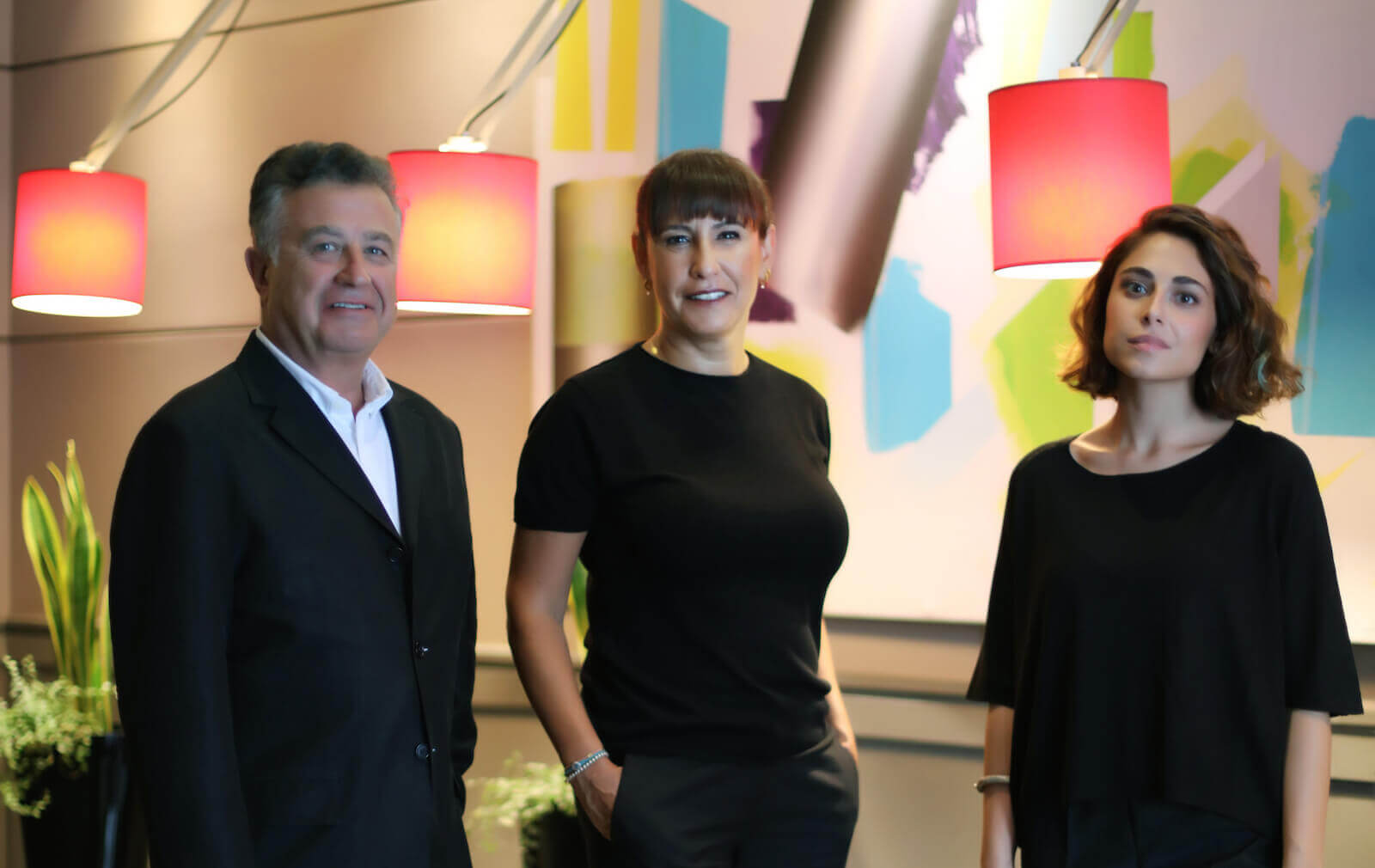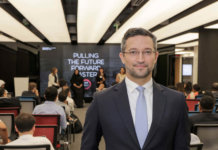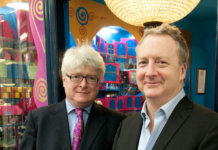Enjoying its eleventh successful year, Contemporary Istanbul is one of Turkey’s biggest modern art fairs. Born out of founder Ali Güreli’s entrepreneurial passion, it’s now a true Gureli family operation: Ali is Chairman, his wife Rabia is Vice-Chairman and their daughter Koza is Brand Strategist. In this interview, father and daughter tell us about contemporary art in Turkey and what it’s like to stage such a significant fair in a volatile environment.
How did you become passionate about contemporary art?
Ali: I was infatuated with art and design from an early age. My father was an architect and I admired his work. From him, I learnt to look at everything from the perspective of visual aesthetics. I lived in Paris for a while and dived into the world of artists and galleries; I got completely carried away with the city’s cultural landscape. When I got back to Turkey, I used what little money I had to collect works of art. One artist led me to another and the more I familiarized myself with different artists, the more my love and passion for art grew.
In the early 2000s, with a tiny budget I started an event management business focusing on events in three areas: art, design and sport. We started experimenting with Art Istanbul a fair that merged my passion for art with my business interests. Art Istanbul really was an ‘experiment’ because we learnt so much that fed into the success of Contemporary Istanbul.
Why did you start Contemporary Istanbul?
Ali: During my first visit to an art fair in Basel, I felt very strongly that Istanbul would also make a great environment for an art fair. I realised that people needed a platform to come together to see how art in Turkey was progressing.
From the beginning, we defined the fair very carefully; we were not going to be like international fairs where the same blue chip galleries from capitals like London and New York gathered under one roof. Istanbul is a unique city and very different to its counterparts; we wanted the fair to reflect this. Over half of the participants in Contemporary Istanbul are galleries in this region. Istanbul, throughout history, has created art; it was a giant art workshop. I was sure of the following: we are Istanbulites, and our fair should be like Istanbul. I knew the fair would develop its unique identity primarily through the art it exhibited and therefore decided to pay undivided attention to Turkish contemporary art.
Today, Istanbul increasingly exports its contemporary artworks. Importing artworks is a more general practice in the Middle East and we are positioning Istanbul as the hub for that. We gather art from the Middle East, Black Sea countries, Russia, the Balkans, Israel, Iran, Egypt and Northeast Africa. This earns us our distinct character and identity for both international visitors and Istanbulites. We do our best to preserve this unique character. We’re aiming for a ‘glocal’ character for Contemporary Istanbul: regional and global.
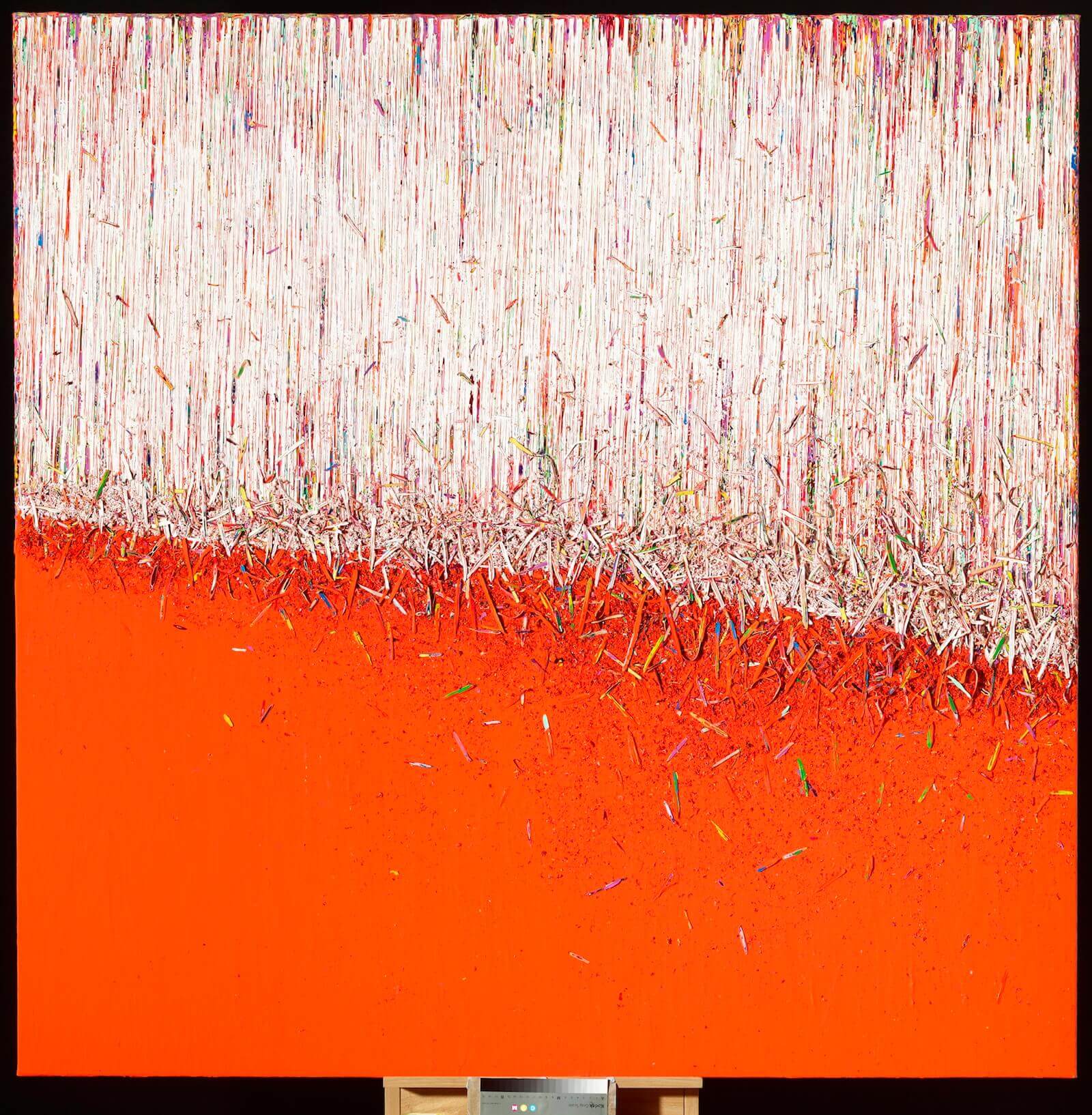
How many family members are involved in Contemporary Istanbul and what do they do?
Ali: My wife Rabia and my daughter Koza are a part of the team. Rabia is the Vice Chairperson, as well as a partner at Contemporary Istanbul. She is the cornerstone of the fair; she has been an invaluable part of the team since the beginning. Koza is in charge of our brand strategy and partnerships. She is a hardworking and an ambitious person with a strong character who has been very effective in revitalizing the fair with her fresh ideas. I must admit however, it wasn’t a smooth transition. Change is always hard, especially when it’s your young daughter who’s suggesting it! But Koza has proven that she is more than capable of implementing ideas that work and of growing our business.
How has cultural entrepreneurship evolved in Turkey over the past few decades?
Ali: In the 90s, the major setback facing Turkish contemporary art was the country’s inability to open up to the world. There wasn’t such a need for galleries back then. We were strongly encouraged by how the Istanbul Biennial emerged in 1989 and how it flourished. This was a milestone in Turkey’s art scene; it paved the way for the opening of several major art museums, such as Istanbul Modern and Sabanci Museum, which are dedicated to modern and contemporary art. Ultimately, the establishment of Contemporary Istanbul and the opening of over 200 galleries has consolidated Istanbul’s position on the global art map, where both Turkish and international artists can be appreciated.
How do you establish a growth strategy for an art fair like Contemporary Istanbul?
Ali: I think the most important factor in a growth strategy is quality. We have always maintained a high level of quality at the fair, both in terms of the art itself and visitor experience including our VIP events programme, lighting, food etc. When we first established Contemporary Istanbul, there were far fewer contemporary art fairs in the world; there was no Frieze New York or Art Basel HK. There’s a better competitive landscape now and that allows different cultures to be explored in specific territories. We’ve established our presence in the region, but that alone is not enough: to survive, fair organizers must focus on quality.
[ms-protect-content id=”4069,4129″]
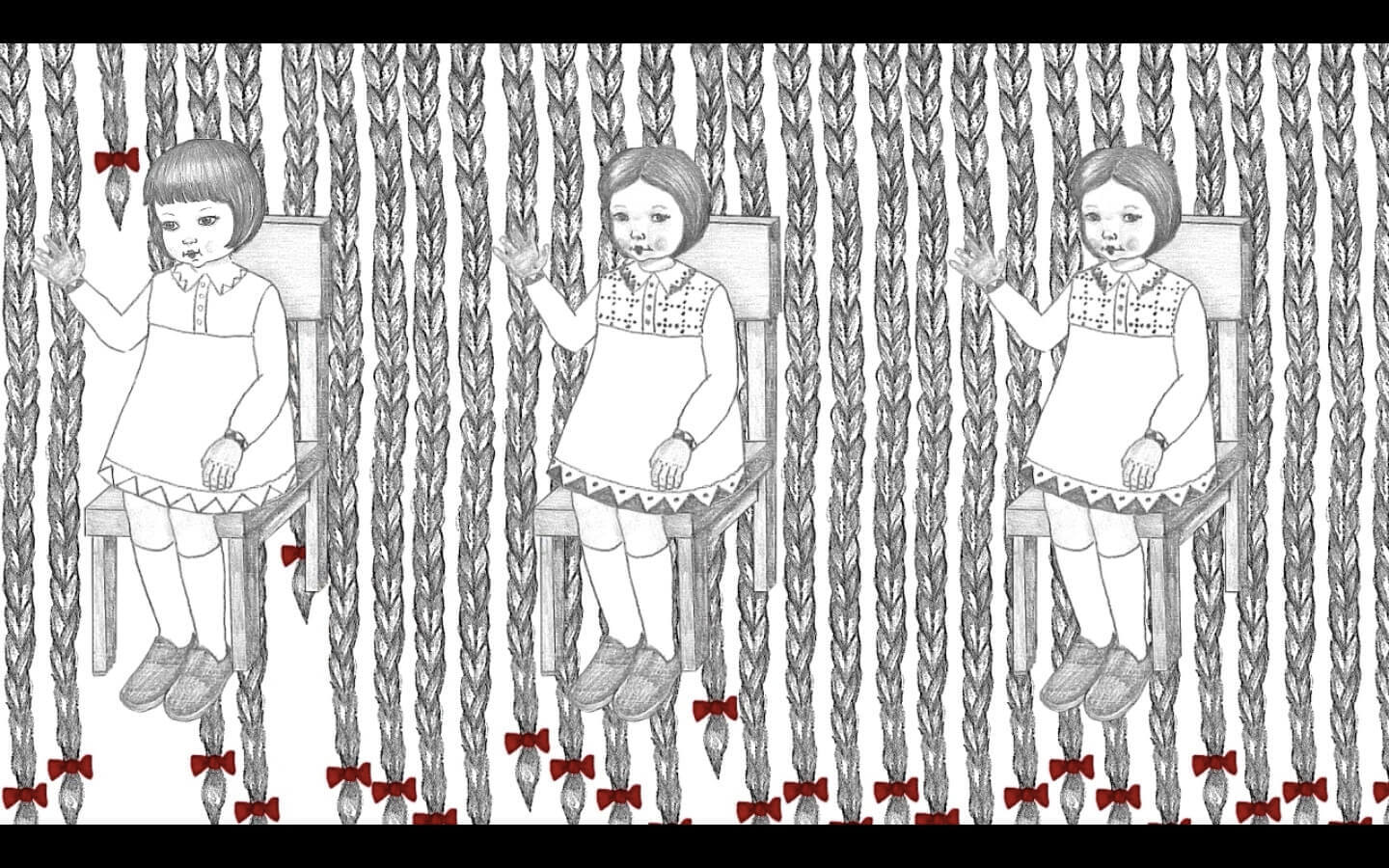
Does family ownership matter in the arts?
Koza: I believe family ownership matters in most businesses but even more so in the arts. Art is about maintaining a certain standard of quality. When it’s a family business, one tends to identify more closely with that business and focus on quality even more. Also the success of a fair depends on good, solid relationships. I think it gives people a feeling of trust and authenticity when each year, a family member greets and welcomes them to the fair. Finally, family ownership creates a sense of sustainability, or continuity. People know that year after year there will always be someone they know personally; this year it’s my father and mother, in five years it might be me, in 20 years it might be my children.
Ali: I must add that the whole extended Contemporary Istanbul team is like a family now. We are a close group where everyone cares for the business as if it’s theirs. We are where we are because of the support from the team; they are experts in their respective fields, as well as our ambassadors in major art cities around the world.
What are the qualities you think will make the leaders of the future?
Ali: I think being proactive is the most important quality for today’s leaders. Globalization has made the world smaller and communication has become easier. Information has never been so accessible. That’s why I think today’s leaders have to consider not just the institution that they are a part of, but also the city they live in, the country that they are from, and the world that they belong to. They have to be in touch with all the elements that surround them. The responsibilities of today’s leaders are bigger and more diversified than those of my generation. To be proactive, they have to be aware of their surroundings and in touch with the world. I think art is the best tool to better understand your surroundings and to keep yourself fresh in today’s ever-changing world.
What are the main challenges you had to overcome to establish Contemporary Istanbul?
Ali: There are challenges in organizing an art fair in a politically unstable environment. We have gone through some difficulties in Turkey since founding Contemporary Istanbul, such as record-high inflation rates. But we always thought: can we find an advantage in these challenges? How can we seize the positive instead of escalating the negatives? How can we leverage them to achieve a different outcome? Now we are trying to stimulate the environment, fill it with positive energy, stir it up. Last November was a tough month for Turkey but people at the fair thanked me and told me what we were doing was amazing; that they all needed such a fair. So I learned that we are addressing a need for normality. Fifty per cent of this business is about math and finances but the other half revolves around psychology and perception. Challenging times should not drag us to pessimism. I believe that we need more artistic and critical endeavors under the current circumstances. I believe art and the creative industries have the potential to play a leading part in Turkey’s future.
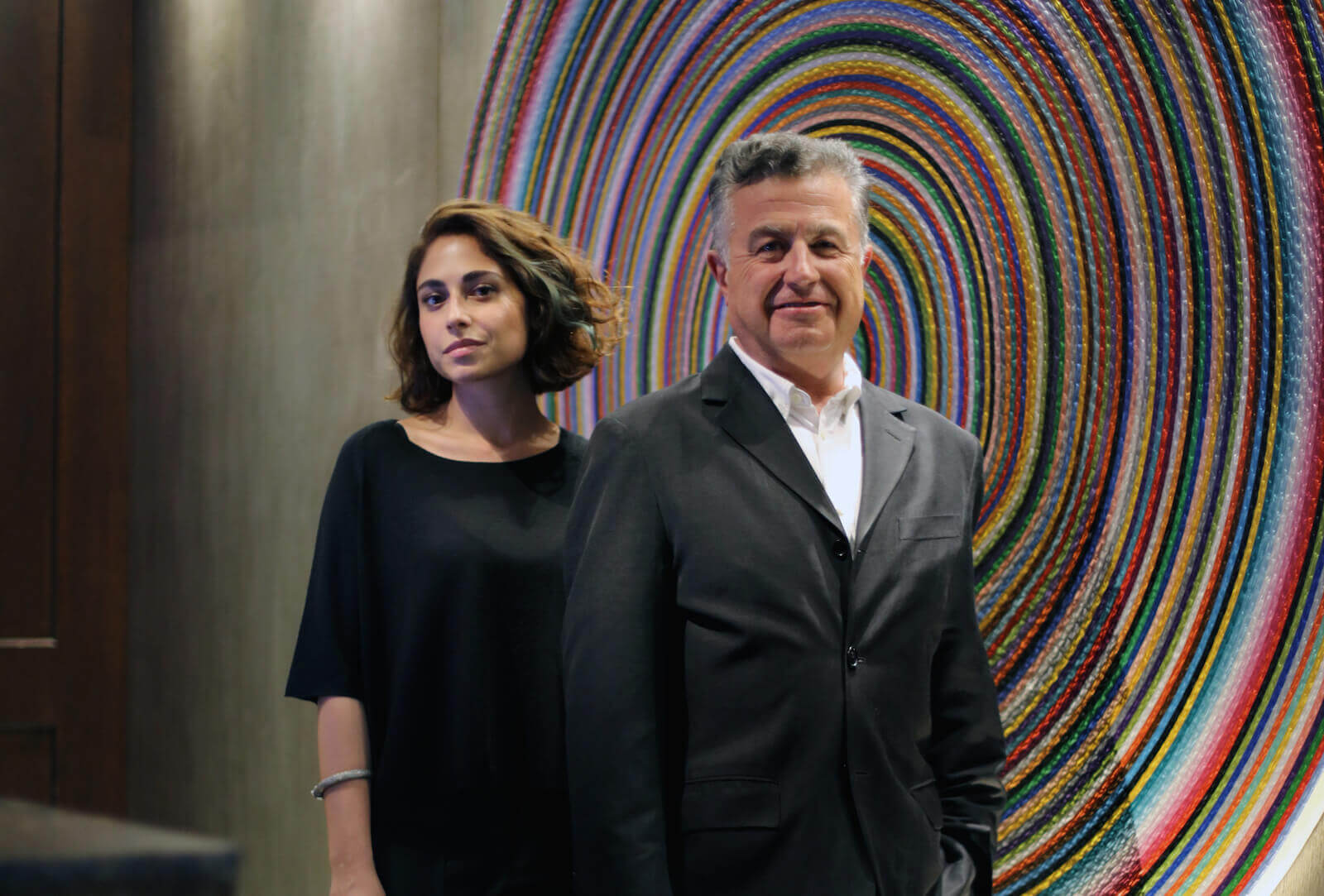
What does contemporary art symbolize to the next generation in Turkey?
Koza: Amongst my peers there is a sense of detachment from brands and labels and an inclination towards the story behind an object, be it an artwork, a piece of clothing or even food. We are more concerned about how, than what, where, or who. So in this context, I think contemporary art symbolizes ‘uniqueness’ for my generation. How the artwork was made, how it got where it is today, how does one feel when looking at it, what is so unique about it?
That’s why I think our new project, Collectors’ Stories, is a very exciting one. Collectors’ Stories is an exhibition of 120 artworks selected from the private collections of 60 Turkish collectors. We aim to provide insight into collecting in Turkey by exhibiting highlights from private collections across the country. We want to help people understand contemporary art collections, tastes, trends, strategies and motivations behind art acquisition. The project will look into the unique stories behind collections as told by collectors. We believe that by bringing together these stories, the exhibition will draw a roadmap for a new generation of collectors.
What are your future plans for Contemporary Istanbul and your family business?
Ali: We have worked hard to turn the Turkish art scene into an internationally acclaimed market over the past 11 years. Many cultural hubs around the world express realities of the past and present but Istanbul has become a cultural and artistic meeting point that symbolizes the future. As we enter our second decade, we want to stay successful, maintain the quality of the fair and increase the number of collectors coming to Turkey. In addition to that there are some structural challenges we’re taking on. Firstly, we would like to see increased support for the arts and artists in Turkey: amendments to relevant legislation and a rearrangement of applicable taxation. Art products should be included in the scope of exports; artworks produced in Turkey should be introduced under the Turquality brand in world fairs. This will also allow galleries to attend more art fairs. Our second aim is to enlarge and strengthen the art market in Turkey; we need incentives for corporate collections and investments in art.
As for succession, I think we already have a great candidate in Koza. I also have two younger sons who are more than welcome to join the team anytime!
[/ms-protect-content]


